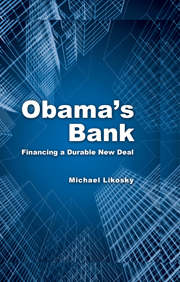5 - Free Market Statism
Published online by Cambridge University Press: 05 June 2012
Summary
Introduction
Chapter 2 related how a dispute over President Barack Obama's economic philosophy took center stage shortly after his inauguration, as Rush Limbaugh popularized the opposition messaging, which used the word socialism as a boo word in an attempt to discredit Obama's policies. It argued that Obama's emphasis on an important role of government in the economy was not incompatible with his adherence to free market principles. In fact, the financial crisis itself was not caused by an absentee deregulatory government alone. Instead, for several decades, government used companies as foreign policy organs to promote a brand of globalization that undermined the domestic health of our economy and eventually resulted in today's systemic crisis. Thus, government plays an active role in our free market economy in both good times and bad. The aim then is to ensure that the government partnerships with private firms underpinning our economy advance, rather than undermine, the public interest. The success of the Obama recovery must ultimately be judged by his own standard: its ability to promote the common good.
Obama explained his economic philosophy as having three basic aspects. First, he is a firm believer in, a champion of, the free market. Second, he also takes the position that government can legitimately make sure that America invests in what is needed for long-term growth. Third, the success of the market must be judged based on its ability to advance the common good. This philosophy is firmly rooted in American economic tradition. This chapter defines it as free market statism. It explains that adherents of free market statism over the last hundred years have not only understood the American economy in similar ways, but they have also voiced a common set of concerns about accountability.
- Type
- Chapter
- Information
- Obama's BankFinancing a Durable New Deal, pp. 65 - 88Publisher: Cambridge University PressPrint publication year: 2010



